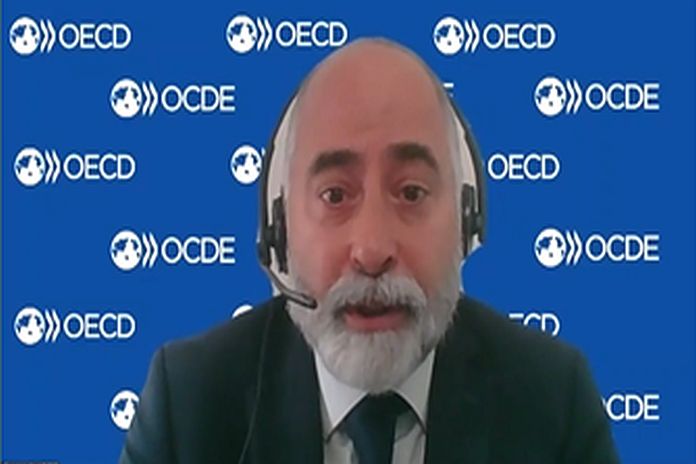PARIS, France — The international community has made substantial progress towards reaching a consensus-based long-term solution to the tax challenges arising from the digitalisation of the economy, and agreed to keep working towards an agreement by mid-2021, according to a Statement released Monday.
The OECD/G20 Inclusive Framework on BEPS, which groups 137 countries and jurisdictions on an equal footing for multilateral negotiation of international tax rules, agreed during its 8-9 October meeting that the two-pillar approach they have been developing since 2019 provides a solid foundation for a future agreement.
Watch the live webcast of the press conference
Recognising that the negotiations have been slowed by both the COVID-19 pandemic and political differences, inclusive framework members said that the blueprints of the two-pillar approach released today reflect convergent views on key policy features, principles and parameters for a future agreement. They identified remaining political and technical issues where differences of views remain to be bridged, and next steps in the multilateral process.
Participants approved for public consultation a new Blueprint for Pillar One of the project, which would establish new rules on where tax should be paid (“nexus” rules) and a fundamentally new way of sharing taxing rights between countries. The aim is ensure that digitally-intensive or consumer-facing Multinational Enterprises (MNEs) pay taxes where they conduct sustained and significant business, even when they do not have a physical presence, as is currently required under existing tax rules.
Participants also approved for public consultation a new Blueprint for Pillar Two of the project, which would introduce a global minimum tax that would help countries around the world address remaining issues linked to base erosion and profit shifting by MNEs.
The absence of a consensus-based solution, on the other hand, could lead to a proliferation of unilateral digital services taxes and an increase in damaging tax and trade disputes, which would undermine tax certainty and investment, the OECD said. Under a worst-case scenario – a global trade war triggered by unilateral digital services taxes worldwide – the failure to reach agreement could reduce global GDP by more than 1 percent annually.
“It is clear that new rules are urgently needed to ensure fairness and equity in our tax systems, and to adapt the international tax architecture to new and changing business models. Without a global, consensus-based solution, the risk of further uncoordinated, unilateral measures is real, and growing by the day,” said OECD secretary-general Angel Gurría. “It is imperative that we take this work across the finish line. Failure would risk tax wars turning into trade wars at a time when the global economy is already suffering enormously.”
A new economic impact analysis released today shows the combined effect of the two-pillar solution under discussion. Up to 4 percent of global corporate income tax (CIT) revenues, or USD 100 billion of revenue gains annually, could result from implementation of the global minimum tax under pillar two. The analysis also shows that a further USD$100 billion could be redistributed to market jurisdictions through pillar one plans to ensure a fairer international tax framework.
The ongoing work will be presented in a new OECD Secretary-General Tax Report and discussed during the next meeting of G20 finance ministers and central bank governors, under the Saudi Arabian presidency, on 14 October.
For more information on the OECD/G20 BEPS Project, and to access a highlights brochure and FAQs, visit: www.oecd.org/tax/beps/beps-actions/action1/.
Working with over 100 countries, the OECD is a global policy forum that promotes policies to improve the economic and social well-being of people around the world.







